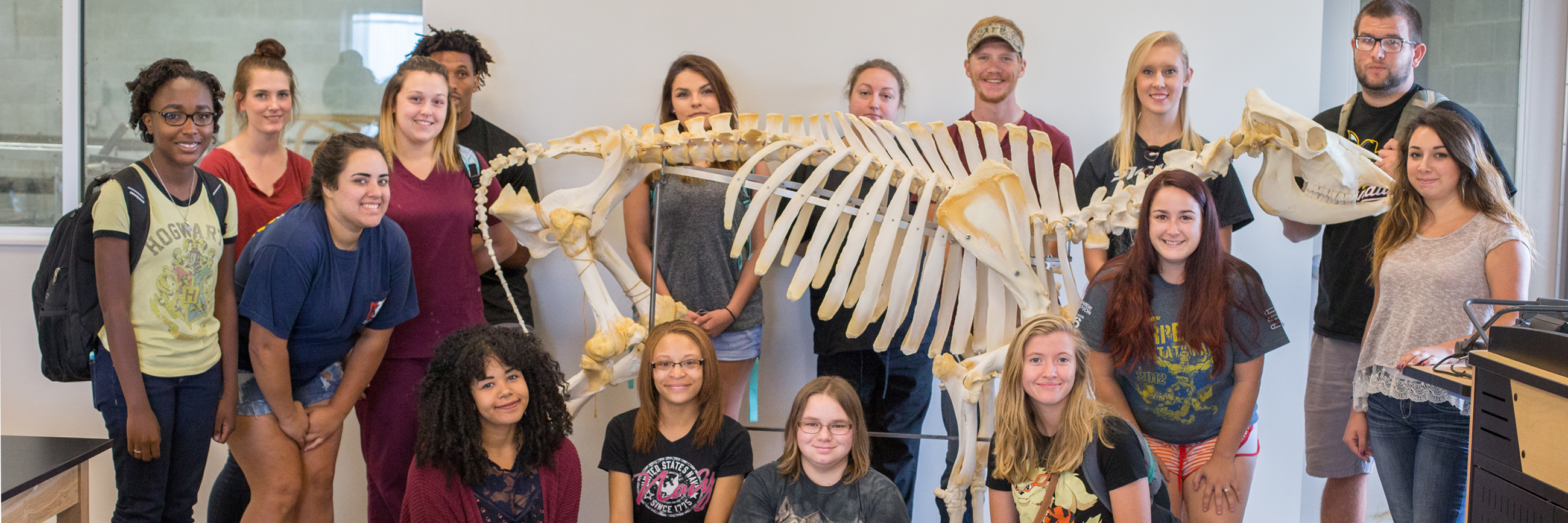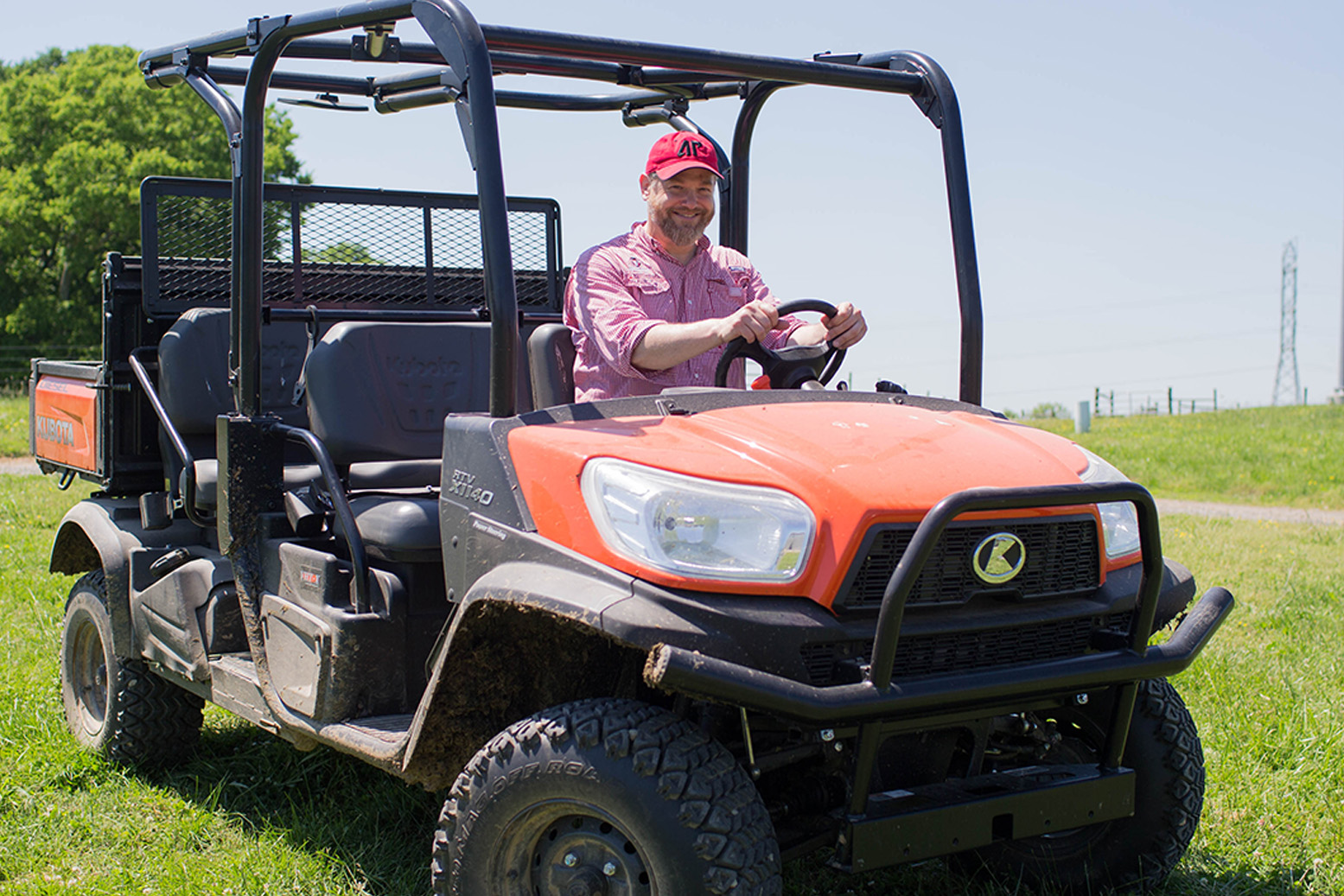Why study Pre-Veterinary Medicine
Agriculture is one of the most important areas you could choose because it addresses a basic human need—food and other natural resources. According to the U.S. Bureau of Labor and Statistics, employment of veterinarians is projected to grow at a much-faster-than-average rate of 16% between 2019 and 2029.
The Pre-Veterinary Medicine program at APSU prepares students for successful application to veterinary schools at institutions accredited by the American Veterinary Medical Association, like the University of Tennessee, Auburn University, Lincoln Memorial University, and many others.
Students interested in this field typically have a strong background in Math and Science. Most will have a passion for helping animals of all types. Some will have a special interest in animal and even human health, since zoonotic diseases and livestock health and wellbeing directly affect humans. Successful Pre-Vet students are motivated to maintain a high gpa and gain many hours of veterinary guided animal experience which will aid in making them a competitive candidate for vet school admission. Future veterinarians should possess these traits:
- Communication skills. Strong communication skills are essential for veterinarians, who must be able to discuss their recommendations and explain treatment options to animal owners and give instructions to their staff.
- Compassion. Veterinarians must be compassionate when working with animals and their owners. They must treat animals with kindness and respect, and they must be sensitive when dealing with the animal owners.
- Decision-making skills. Veterinarians must decide the correct method for treating the injuries and illnesses of animals.
- Manual dexterity. Veterinarians must control their hand movements and be precise when treating injuries and performing surgery.
-
Problem-solving skills. Veterinarians need strong problem-solving skills because they must figure out what is ailing animals. Those who test animals to determine the effects of drug therapies also need excellent diagnostic skills.
Agriculture courses are delivered in small class settings with individual attention from faculty with experience and expertise in agriculture and veterinary science. Students have an opportunity for hands-on learning at the 440-acre University Farm and Environmental Education Center to study livestock, companion animals and wildlife. Our Pre-Veterinary concentration will prepare you to work with a wide variety of animal patients—everything from livestock to exotic pets. Students have the opportunity to be advised by a veterinarian that is also an Austin Peay Pre-Vet concentration alum, providing them with a unique perspective as they complete the curriculum and prepare for applying to veterinary schools.
APSU Agriculture faculty who teach Pre-Veterinary Medicine students have a wide variety of expertise in such fields as: Animal Science, Veterinary Medicine and Veterinary Technology.
What Will I Learn
- Pre-veterinary medicine students take a variety of courses in agricultural, biological, chemical and physical sciences to complete B.S. degree requirements and to improve the students' chances for success in veterinary school.
- At the completion of this program, students are expected to graduate from APSU with a B.S. in Agriculture, have completed a minor in Chemistry, and have met the admissions requirements of most AVMA accredited colleges of veterinary medicine.
- Within the curriculum, students will have the opportunity to experience live animal handling.
Because agriculture encompasses so many aspects of our world, including the study of animal, plant, and environmental systems, agriculture majors can enter a variety of careers in business, government, and the nonprofit sectors—or work for themselves. Our graduates work in a wide variety of Agricultural related careers. These include but are not limited to:
- Large Animal, Small Animal, Exotics or Zoo Species Veterinary Clinics
- Specialty/Referral Veterinary Practices
- Laboratory Animal Health and Research Facilities
- Wildlife Rehabilitation Facilities
- Local and National Government Regulatory Positions
- Humane Societies and animal control facilities
- Veterinary Pharmaceuticals
- Research and Development
- Industry
- Teaching
Program Information
Pre-Veterinary Program Requirements
Pre-Veterinary Concentration Sample 4 Year Plan

